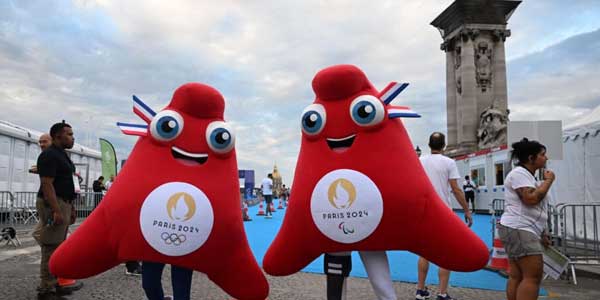Russian and Belarusian Paralympic Athletes Granted Permission to Compete in Paris 2024 under Neutral Flag
In a recent decision by the International Paralympic Committee (IPC), Russian and Belarusian athletes have been given the opportunity to participate in the Paris Paralympics in 2024, albeit under a neutral flag.
The IPC's majority vote allows these athletes to compete "in an individual and neutral capacity," without national flags, colors, or emblems.
This move comes in the wake of Russia's suspension from Paralympic competition due to its invasion of Ukraine in February 2022, with Belarus, Russia's ally, also facing a suspension.
The IPC's General Assembly, held in Manama, Bahrain, rejected a complete ban on Russian participation, asserting that "sport and politics should not mix."
However, the Russian National Paralympic Committee has been partially suspended for two years due to "breaches of its constitutional membership obligations."
This decision has been made in response to Russia's invasion of Ukraine and the subsequent suspension of athletes from both Russia and Belarus from participating in international sporting events, including the Winter Paralympics in Beijing in March 2022.
The IPC's decision, with 90 members in favour, 65 against, and six abstentions, marks a significant development just ahead of an International Olympic Committee (IOC) session in Mumbai.
During this session, the IOC is expected to address the participation of Russian and Belarusian athletes in the 2024 Paris Olympics, though a formal decision will be made "at the appropriate time."
While athletes from these nations have faced sanctions in various sports since the conflict began, the Russian Olympic Committee has affirmed its intention not to boycott the Paris Games.
Russian athletes will have the option to compete as neutrals, with the committee highlighting that boycotting the games would not be a productive course of action.
The conflict in Ukraine has led to a tragic toll, with the United Nations documenting 9,000 civilian deaths, including 500 children, since the war's commencement. These figures may, however, underestimate the true extent of the devastation.



























